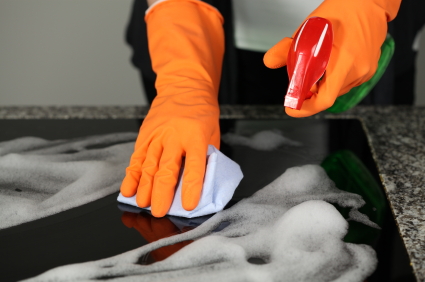Updated (April 2018): For the most up-to-date information on surety bonds for your cleaning business, please visit our 2018 Guide to Janitorial Service Bonds.
This article is the fifth installment of our Surety EDU series, which is brought to you by nationwide surety bond agency SuretyBonds.com. Check back next Friday for another in-depth look at how surety bonds work.
If you run a janitorial company, chances are you’ve heard your competition market themselves as being legally licensed and bonded. Of course, all janitorial companies have to be licensed according to whatever state laws apply to them, but surety bonds are an optional form of financial protection that reassures clients.
So, what are janitorial surety bonds, anyway?
A basic definition explains that a surety bond is a legally binding contract that ensures a certain task is performed. Most janitorial service business owners buy surety bonds because they operate small companies and want a cost-effective way to protect against employees who might choose to act unethically. Even if you trust your staff to the fullest extent, the reality is that you and your business become easy targets if a client’s belongings go missing.
Janitorial surety bonds are also known by other names such as custodian bonds or business service bonds. Regardless of the name, this bond provides protection for clients who work with home and business cleaning services.
What kind of businesses get bonded?
Unlike most surety bond types, janitorial surety bonds are completely voluntary. You may choose to purchase a custodian bond if you operate a janitorial company, maid service, carpet cleaning service, house cleaning service or another type of cleaning business. Remember, the purpose is to convince prospective clients that their belongings and property will be safe from theft if they choose to work with you.
Do janitorial companies receive protection from surety bonds?
Surety bonds should not be confused with traditional insurance policies. When purchasing a surety bond, you and your company do not receive any of the bond’s financial protection. Instead, the bond will protect your customers from losses that could result from unethical employees who might choose to steal. As such, buying a custodian bond reassures clients that you’re committed to running a legitimate enterprise.
Will my bond protect against damages?
No, surety bonds only protect against theft. If you or an employee damages a client’s property or possessions, the bond will not cover these costs. If you’re looking for damage protection, consider purchasing a special insurance policy.
How much does it cost to get bonded?
Janitorial bonds are some of the cheapest surety bond types to purchase. The exact price you’ll pay depends on how many employees you manage and much coverage you want. Janitorial bonds are typically purchased by small business owners who usually pay about
- $126/year for $10,000 worth of coverage for five or fewer employees
- $187/year for $25,000 worth of coverage for five or fewer employees
- $257/year for $50,000 worth of coverage for five or fewer employees
- $350/year for $100,000 worth of coverage for five or fewer employees
Of course, larger janitorial companies also purchase bonds, and higher bonding amounts are available as well. To determine what you’ll pay for a bond, visit SuretyBonds.com.
[button font_size=”20″ color=”#FF8C00″ text_color=”#ffffff” url=”https://www.suretybonds.com/quote” target=”_blank”]Get a Free Quote [/button]
